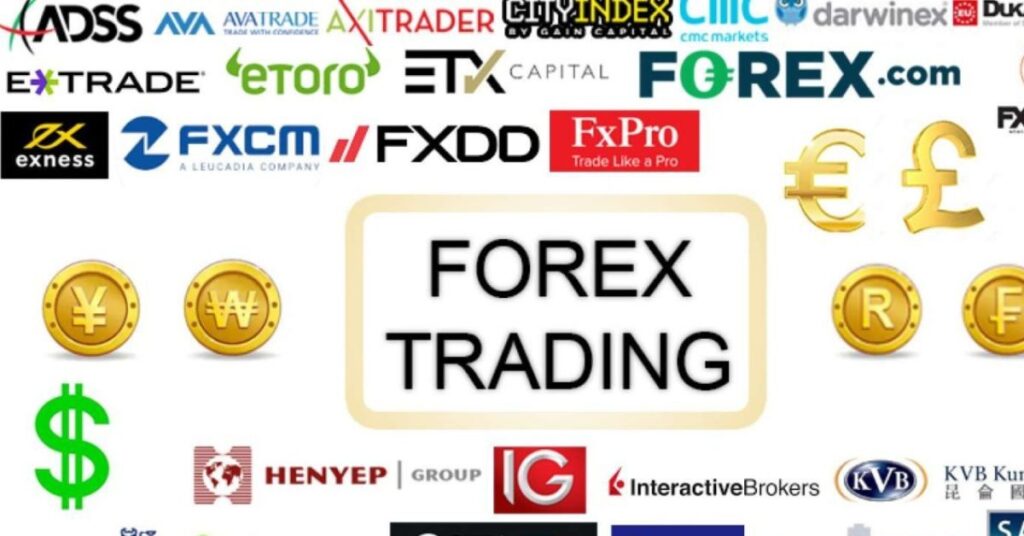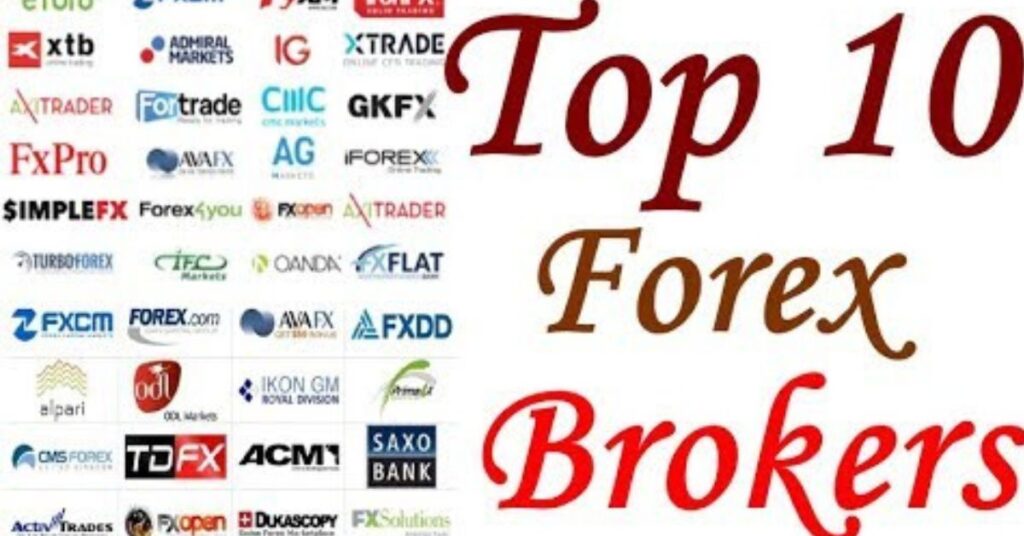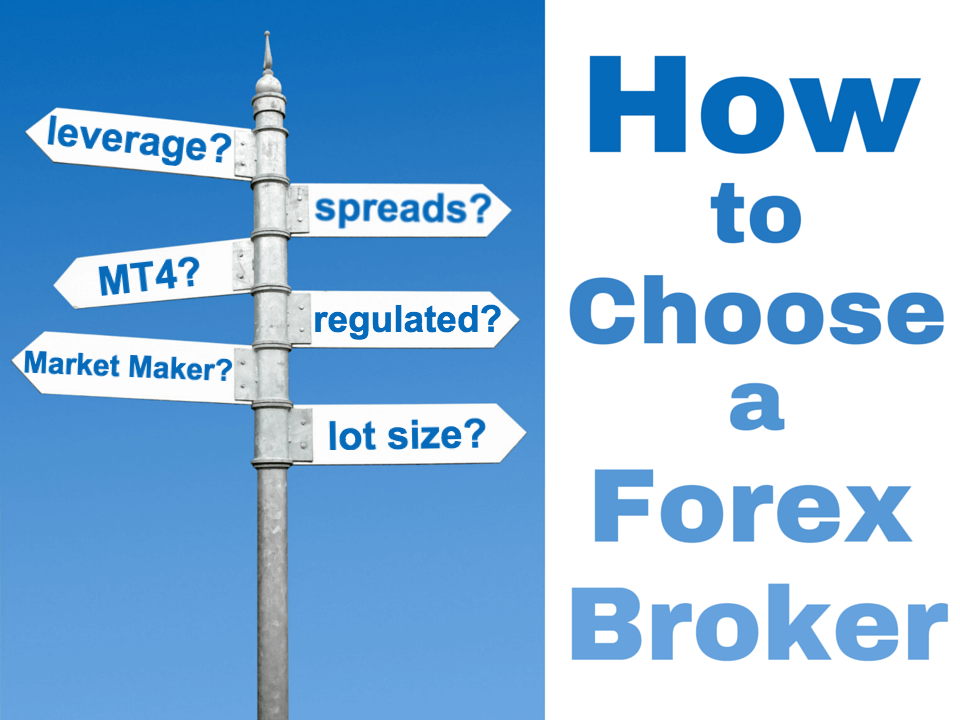Physical Address
304 North Cardinal St.
Dorchester Center, MA 02124

The foreign exchange market, also known as the forex market, is the world’s largest and most liquid financial market. It offers immense opportunities for traders and investors to buy and sell currencies to profit from price differences. However, navigating this market effectively requires a reliable and trustworthy forex broker. In this blog post, we will explore the top forex brokers according to FintechZoom, highlighting their features, strengths, and reviews.
FP Markets stands out for its impressive selection of financial instruments and advanced trading platforms. It offers competitive spreads and emphasizes providing an ideal trading experience. FP Markets provides multiple account types to suit different trading styles and budgets, including MetaTrader 4 (MT4) and 5 (MT5), cTrader, and Iress platforms. Traders can select from over 10,000 tradable assets, including minor, major, and exotic currency pairs. FP Markets also offers robust educational resources, making it an excellent choice for beginners.
IC Markets is renowned for its wide selection of currency pairs and competitive pricing. It offers advanced trading tools that make trading convenient for all levels of experience. IC Markets supports numerous tradable currency pairs and provides reliable educational resources to help traders confidently navigate the forex market.
XM Group is a comprehensive forex broker that offers traders access to an impressive array of trading facilities and services. It provides competitive prices and sophisticated tools, making it suitable for both beginners and veterans. XM Group allows traders to make deposits and withdrawals through various banking options, including credit and debit cards, e-wallets, wire transfers, and more. The firm also offers Micro, Standard Zero, and ultra-low Accounts to traders.
Tickmill is an online forex and CFD broker that offers an array of trading instruments at competitive prices. It provides low forex/CFD fees, an easy account opening process, and free deposit/withdrawal options. Tickmill’s customer service has received great praise for its quick and helpful responses. The broker also offers numerous educational resources, including webinars and seminars, to help traders develop their trading knowledge and skills.
MultiBank Group stands out for its deep liquidity and no trading restrictions. It operates offices in 20 countries and complies with 10 regulators, ensuring clients have an unmatched global network. MultiBankFX offers MT4/MT5 trading platforms, which fully support algorithmic trading and a proprietary copy trading service. The asset selection includes 55+ currency pairs and 20,000+ equity CFDs and ETFs, while cryptocurrency traders get access to eleven highly liquid coins. MAM/PAMM accounts cater to traditional retail account management, VPS hosting to algorithmic traders, and FIX API trading to advanced trading requirements featuring custom solutions.
FintechZoom’s reviews are based on extensive research and data collection, ensuring that the top forex brokers listed are reliable and trustworthy. These brokers offer competitive spreads, transparent fee structures, and exceptional customer support services. They also provide educational resources that support trading proficiency and offer various currency pairs to meet the needs of traders of all experience levels.
Choosing the right forex broker is crucial for success in international currency markets. FintechZoom’s top forex brokers of 2024 offer a range of features and benefits that cater to different trading styles and budgets. Whether you are a beginner or an experienced trader, these brokers provide the tools and support needed to navigate the forex market effectively. By selecting from FintechZoom’s top forex brokers, you can be confident in your trading decisions and maximize your profit potential.

IG is considered one of the most trusted and reputable forex brokers. It offers a wide range of currency pairs, competitive spreads, and a user-friendly trading platform. IG is regulated by top-tier authorities like the FCA and ASIC.
Interactive Brokers is a great choice for professional traders, offering low costs and powerful trading platforms. It provides access to over 100 currency pairs and even allows trading of some cryptocurrencies.
FOREX.com is a specialized forex broker that offers clients the choice between spread or commission-based pricing. It provides access to over 80 currency pairs and is considered one of the top brokers in the U.S.
XM Group is a comprehensive forex broker that offers competitive pricing, and sophisticated tools, and supports multiple trading platforms like MT4 and MT5. It provides various account types and a wide selection of currency pairs.
FP Markets stands out for its advanced trading platforms, extensive selection of financial instruments, and competitive spreads. It offers over 10,000 tradable assets, including major, minor, and exotic currency pairs.
When choosing a forex broker, key factors are regulation, trading conditions, platform features, customer service, and overall reputation. Opening an account with a reputable, well-regulated broker is crucial for success in the forex market.

Top Forex Trading Platforms in 2024
AvaTrade Web is considered the overall best forex trading platform. It offers a user-friendly interface, robust charting tools, and a wide range of currency pairs. AvaTrade is a well-regulated broker that provides a seamless trading experience.
ProRealTime is tailored for traders who prioritize comprehensive charting capabilities. It offers advanced technical analysis tools and a customizable interface.
MetaTrader 4 (MT4) is a popular platform that incorporates a comprehensive array of technical indicators and supports automated trading strategies.
NinjaTrader offers a versatile and personalized platform, catering to the needs of both beginners and experienced traders.
cTrader provides a seamless and engaging trading experience, with a focus on user-friendliness and advanced features.
MetaTrader 5 (MT5) features a contemporary interface and supports a wide range of asset classes beyond just forex.
TradingView is well-known for its excellent charting abilities, making it a popular choice for technical analysis.
The best forex platform depends on your trading style, experience level, and specific needs. It’s important to evaluate factors like regulation, fees, platform features, and compatibility when choosing a forex broker and its associated trading platform.
A forex broker plays a crucial role in facilitating forex trading by providing traders with access to the foreign exchange market and various services to support their trading activities. Here are the key functions of a forex broker:
Forex brokers act as an intermediary between traders and the global forex market. They connect traders to the vast network of banks, financial institutions, and other market participants where currency trading takes place.
Brokers provide traders with trading platforms that enable them to execute trades, analyze market trends, and manage their portfolios. These platforms come equipped with essential tools, charts, and indicators to assist traders in making informed decisions.
Forex brokers play a vital role in executing traders’ orders promptly and efficiently. They strive to minimize delays in order execution to ensure traders can capitalize on market opportunities.
Brokers offer financial leverage to traders, allowing them to control larger positions with a relatively small amount of capital. This amplifies potential profits but also increases the risk of losses.
Many brokers provide educational resources, such as tutorials, webinars, and written materials to help traders enhance their understanding of the market, technical analysis, and risk management.
Reputable brokers operate under the supervision of regulatory bodies that oversee financial markets. They adhere to strict standards set by these authorities to ensure transparency, security, and fairness for traders.
By fulfilling these functions, forex brokers play a crucial role in facilitating currency trading and supporting traders in navigating the complex and dynamic forex market.
The short answer is yes, you generally need a forex broker to participate in the forex market as an individual trader. Here’s why:
The forex market is a decentralized global market, meaning there is no central exchange. Forex brokers act as intermediaries, providing traders with access to the forex market and its participants, such as banks, financial institutions, and other market makers.
Forex brokers execute your buy and sell orders in the forex market. They facilitate the actual trading process, ensuring your orders are processed efficiently and at the best available prices.
Forex brokers offer leverage, which allows traders to control a large position with a relatively small amount of capital. This can amplify both profits and losses. Brokers also provide margin accounts, which enable traders to trade with borrowed funds.
Forex brokers provide trading platforms that offer advanced charting, analysis tools, and order execution capabilities. These platforms are essential for effective forex trading.
Reputable forex brokers are regulated by financial authorities, ensuring they operate within legal and ethical boundaries. This provides a level of trust and security for traders.
Forex brokers typically offer customer support services to assist traders with any issues or questions they may have during the trading process.
While it is possible to trade forex without a broker, it is highly impractical and risky for most individual traders. Utilizing the services of a reliable and well-regulated forex broker is crucial for accessing the forex market and trading effectively.
To start trading forex, you typically need a minimum amount of capital, known as the initial margin. The required initial margin varies depending on the broker and the specific trading conditions. Here are some general guidelines:
When choosing a forex broker, consider factors such as regulation, trading conditions, platform features, customer service, and overall reputation to ensure you are working with a reliable and trustworthy partner.

Saxo Bank is regarded as one of the best overall forex brokers. It offers a massive selection of currency pairs, low trading fees, high-quality charting and research tools, and a user-friendly trading platform.
Fusion Markets stands out for its low trading and non-trading fees, fast and easy account opening, and excellent customer service. It provides a great trading experience for both novice and experienced forex traders.
OANDA is a well-established and highly regulated forex broker that offers competitive spreads, a wide range of currency pairs, and user-friendly trading platforms like MetaTrader 4 and 5.
IC Markets is known for its low forex fees, easy and fast account opening, and free deposit and withdrawal options. It caters to traders of all experience levels with its advanced trading tools and resources.
Pepperstone offers a fast and fully digital account opening process, seamless and free deposit and withdrawal, and great educational materials to support traders.
When choosing the best forex broker, key factors include regulation, trading conditions (spreads, fees, and leverage), platform features, customer service, and overall reputation. The top brokers on this list are well-regarded for providing a reliable and comprehensive trading experience for forex traders.
According to the search results, the biggest forex broker in the world in 2024 will be IC Markets.
IC Markets is considered the largest forex broker globally, with an impressive average daily trading volume (ADVT) of around $29 billion.
The size and trading volume of a forex broker can provide benefits like better liquidity, more advanced trading platforms, and higher regulatory oversight. However, it’s important to consider factors like trading conditions, customer support, and overall reputation when choosing a broker.
Based on the search results, here are the top 10 forex brokers in 2024:
The top brokers are known for low fees, fast account opening, seamless funding, great customer service, and a wide selection of currency pairs and trading platforms. Regulation and trader satisfaction are also key factors that set these brokers apart.
Here are some key points on popular forex guides based on the search results:
The top forex brokers recommended across the search results include:
These brokers are praised for factors like regulation, trading platforms, low fees, customer service, and overall trading experience.

When selecting a forex broker, key factors to consider include:
Evaluating these aspects can help traders find a broker that best suits their trading style and needs.
Guides for beginner forex traders often cover topics like:
The goal is to provide new traders with the knowledge and skills to start their forex trading journey on a solid foundation.
More experienced traders may seek guides on advanced forex trading techniques, such as:
These guides aim to help seasoned traders refine their skills and explore more sophisticated approaches to forex trading.
The search results highlight the importance of comprehensive forex trading guides to support traders at all levels of experience.
A Trading API (Application Programming Interface) is a set of protocols, tools, and standards for building software applications that can interact with a trading platform or financial market. It allows developers to access and integrate trading-related functionality into their applications or systems.
Key features and benefits of a Trading API include:
Trading APIs are commonly used by financial institutions, brokerages, hedge funds, and individual traders to develop custom trading applications, automated trading systems, and market analysis tools. They help streamline the development process and enable more efficient and effective trading strategies.
API trading eliminates the emotional aspect of the trading process, helping traders stick to their trading plans and avoid impulsive decisions.
APIs enable faster order entry and execution, which can be crucial in volatile markets or when dealing with large trading volumes.
APIs allow traders to test their strategies using historical data, which helps in evaluating the potential success of a trading strategy before implementing it in real time.
APIs facilitate the integration of multiple trading platforms and data sources, enabling traders to diversify their investments and access a broader range of markets and asset classes.
APIs can be used to implement risk management strategies such as stop-loss orders, which can help limit potential losses.
APIs provide instant access to real-time market data, which is essential for making informed trading decisions.
APIs can automate trading strategies, freeing up time for traders to focus on other aspects of their trading activities.
API trading can be complex to understand and implement, especially for novice traders.
Fully automated trading may lack the human intuition and market insights that manual trading can provide.
APIs can be prone to technical issues such as connectivity problems, which can disrupt trading activities.
APIs require careful management of security measures to prevent unauthorized access and data breaches.
Setting up and maintaining APIs can be costly and require ongoing technical support.
API trading relies heavily on technology, which can be vulnerable to system failures or outages.
APIs can be restrictive in terms of customization and flexibility, as they are designed to work within specific parameters.
FintechZoom emphasized the following factors in their evaluation and ranking of the best forex brokers for 2024:
The best brokers for beginners, according to FintechZoom, provide extensive educational resources such as:
This helps novice traders develop the knowledge and skills needed to navigate the forex market.
Tickmill’s customer service was highlighted as receiving great praise for its quick and helpful responses, making it a standout in terms of customer support.
The search results indicate IG and Interactive Brokers offer distinct trading platforms:
Overall, FintechZoom’s evaluation focused on a comprehensive set of factors to identify the top forex brokers, emphasizing both trading conditions and the quality of support and resources for traders at all levels of experience.
Saqib Hussain, the mastermind behind the thought-provoking WORLD NEWS, is a prolific author renowned for his insightful exploration of news, artificial intelligence, finance, science, and technology. Graduating with a master’s degree in creative writing from Oxford University, saqib Hussain’s educational background shines through in his meticulously crafted prose.
Hussain’s unique blend of in-depth research and keen observation sets him apart in the literary world. His passion for books, technology, finance, and artificial intelligence infuses his writing with depth and clarity that captivates readers from all walks of life. Beyond his literary pursuits, Hussain finds inspiration in sports, entertainment, and the ever-evolving landscape of technology.
Through his writing, Hussain sheds light on crucial issues shaping our world today, offering a fresh perspective that challenges readers to think critically. With an unwavering commitment to excellence and a profound understanding of his craft, Saqib Hussain continues to shape the narrative of our time, leaving a lasting impact on those who delve into his compelling works.
[…] moved since the last time you […]
Incredible story there. What occurred after?
Thanks! https://Bandur-Art.Blogspot.com/2024/08/the-ultimate-guide-to-no-mans-sky-mods.html
Increrible story there. What occurred after?
Thanks! https://Bandur-Art.Blogspot.com/2024/08/the-ultimate-guide-to-no-mans-sky-mods.html
Way cool! Some very valid points! I appreciate you writing tis
article and also the rest of tthe website is really good. https://www.docdroid.net/TQjTTe2/exploring-the-world-of-online-casino-games-types-and-varieties-docx
Great blog rught here! Additionally your web site a lot up fast!
What web host are you the use of? Can I am gettig your associate
hyperrlink for your host? I desire myy website loaded up as fast as
yours lol https://pubhtml5.com/homepage/zowoz/
My brolther suggested I might like thiis website. He was totally right.
This post actually made my day. You can not imagine just how much time I haad spent for this information! Thanks! https://www.bigoven.com/recipe/como-escolher-o-melhor-jogo-de-crash-em-cassino-online/3098108
My brother suggested I might like this website. He wwas totally right.
This post actually made myy day. You can not imagine just how much
time I had spent for this information! Thanks! https://www.bigoven.com/recipe/como-escolher-o-melhor-jogo-de-crash-em-cassino-online/3098108
Awesome! Its actually awesome paragraph, I have got much clear idea regarding from this article. https://dataphoto.com.br/revistas-impressas-interativas-combinando-a-leitura-tradicional-com-experiencias-envolventes/